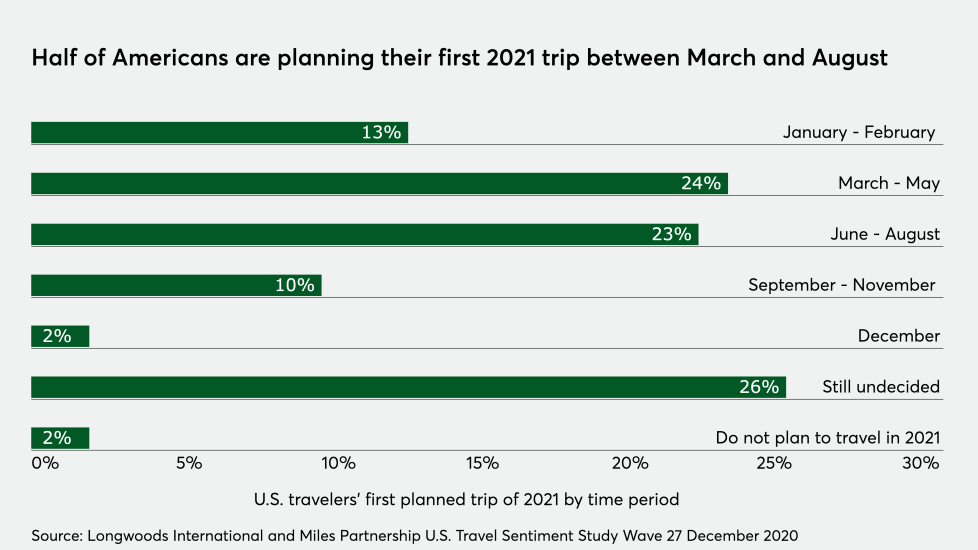COVID-19’s impact on travel has been dramatic, and it has forced both consumers and travel executives to re-imagine what travel will look like going forward.
Despite the emergence of COVID-19 vaccines and aggressive vaccination rollouts, travel still remains at depressed levels, albeit not at the all-time lows of 2020.
The importance of the travel industry as an economic engine driving the global economy cannot be overstated. In the U.S. alone, the travel industry accounted for $1.6 trillion in economic output in 2017, based on data from the U.S. Department of Commerce’s
During the Winter holidays, U.S. traveler levels reached about 50% of 2019 levels, according to the











